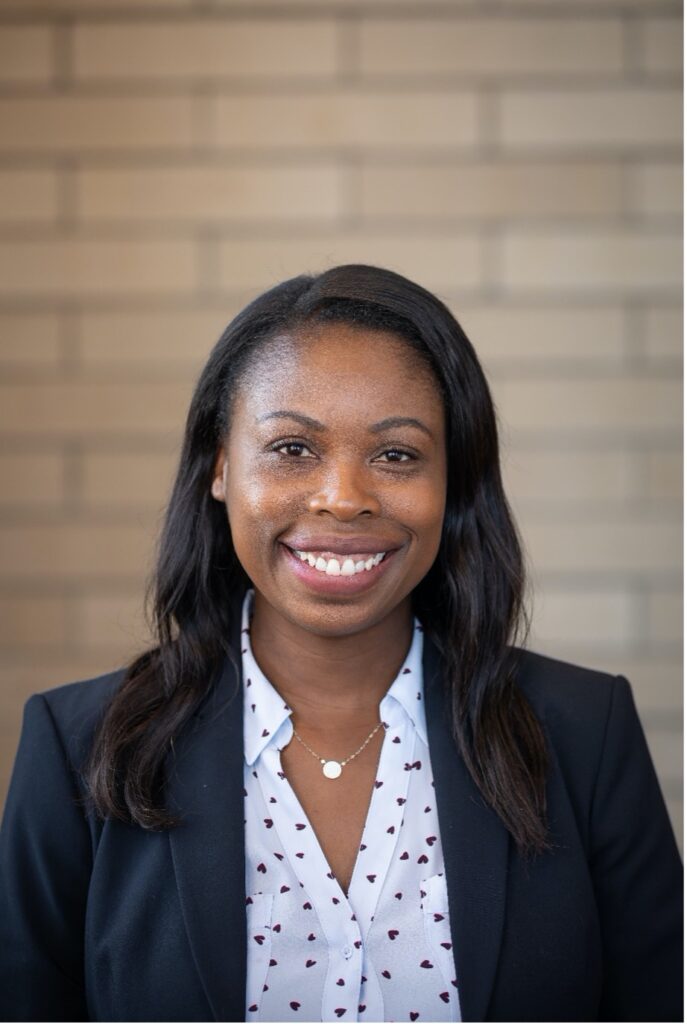By Stephanie Yamoah
This Winter we will be publishing a series of spotlight articles about multilingual students and faculty at DU. These articles are based on interviews that Dr. Kamila Kinyon and a group of multilingual students conducted about interviewees’ lived experiences, including continuing connection to heritage languages, role as writers and teachers at DU, and thoughts about multilingual and multicultural identity. This project is funded by a Faculty Research Fund Grant awarded to Dr. Kinyon for 2023-25. We welcome this opportunity to celebrate DU’s multilingual community.
Born and raised in Kabwe, Central Zambia, Dr. Kabandula’s linguistic journey began in a household where multiple languages coexisted shaping her into the dynamic scholar and educator she is today. Dr. Kabandula grew up in a culturally rich environment where languages like Bemba, Kaonde, Tonga, and English were part of her daily life. “I spoke many languages but at home, I spoke Kaonde and Bemba, Bemba being the predominant language in Kabwe,” she recalls. Her family has a mixed linguistic background. Her sister married into a Bemba-speaking family, and her mother spoke Kaonde, which meant she constantly navigated between languages. By age ten, she was already fluent in four languages, a skill that would later become a cornerstone of her academic and professional life.
For Dr. Kabandula, language is more than just a means of communication. It is a vessel for cultural identity. “When I speak Kaonde, it’s a sense of pride,” she says. “It’s a very difficult language, and very few people speak it even in Zambia.” This connection to her native tongue has remained strong even as she has lived and worked across continents. “When I call my mother on weekends, we don’t speak English. We only speak Kaonde,” she shares. “That’s who I am. That’s the identity I was given.”
One of the most fascinating aspects of Dr. Kabandula’s multilingual experience is her use of code-switching. “When I write, I don’t code-switch. It is when I speak, and the reason why I code-switch a lot is because I find English very lacking in terms of conveying a concise message of what I want to deliver. For instance, in Bemba, there’s the word ‘intulubundi’. If I’m having a conversation with somebody who speaks Bemba, the person would know exactly what I’m talking about, but if I were to explain it in English, it’s like somebody who brings trouble, who is uncontrollable, or likes fighting. I have to add a lot of descriptions.”
Dr. Kabandula’s multilingual background has also had a profound impact on her academic career. As a professor in the Joseph Korbel School of International Studies and director of the Africa Center, she brings a unique perspective to her teaching, service, and research. “When I conduct research in other countries, I am more empathetic,” she notes. “I realize that most people don’t speak English as their first language, so I try to make my interviews simple and clear without using a lot of jargon.” This sensitivity to language barriers has been particularly valuable in her work across Africa where she has conducted research in countries like Nigeria, Ethiopia, Kenya, and South Sudan.
Her multilingualism has also influenced her teaching style. While she primarily teaches in English, she acknowledges the challenges that international students face in the classroom. “Speaking in class is a challenge for many international students,” she observes. “I try to boost their confidence by encouraging them to share their thoughts even if they’re not comfortable with the English.” For Dr. Kabandula, fostering an inclusive environment where students feel empowered to express themselves is a key part of her role as an educator.
When asked how the university can better support its multilingual community, Dr. Kabandula emphasized the importance of creating spaces for connection and collaboration. “For faculty, meeting up with other multilingual speakers can boost morale and remind us that we are not the only ones who struggle with having multiple languages running through our brain at the same time… For students, it’s about building confidence in both speaking and writing. The more they practice, the more comfortable they will become.” She also encourages multilingual students to embrace their linguistic diversity. “Don’t be shy to speak your own language… When I meet Zambians or Kenyans, I try to say a few things in Bemba or Kiswahili. It’s a way of staying connected to my roots and celebrating who I am.”
Dr. Kabandula’s story is one of pride, resilience, and the enduring power of language. Whether she is teaching a class, conducting research, or speaking with her mom over the phone, her multilingualism is a constant reminder of where she comes from and who she is. “I am proud of my identity. I am not sorry about it.”

